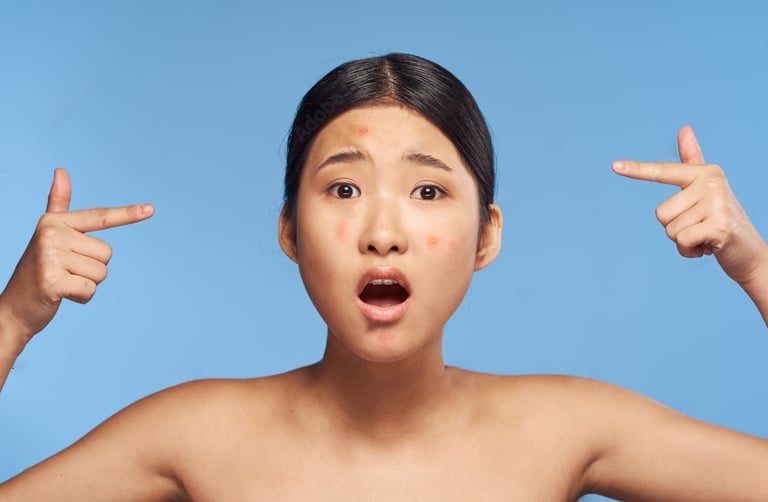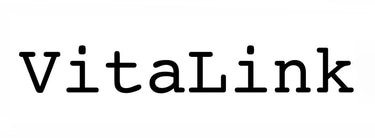

Tratamiento del acné
¿Estás luchando contra el acné?
$75
¡El acné es muy común, pero no lo hace más fácil!
Deja que VitaLink te ayude.
Sea visto de inmediato y envíe medicamentos recetados para su acné a su puerta o farmacia favorita.
¡VitaLink te tiene cubierto!
Tratamiento de Acné y Cuidado de la Piel Online
El acné es mucho más que una simple preocupación estética; es una afección dermatológica que puede afectar la calidad de vida y la autoestima de personas de todas las edades. En VitaLink TeleHealth, entendemos que cada piel es única. Por eso, si estás buscando un dermatólogo online para evaluar tu caso sin esperar meses por un turno presencial, nuestra plataforma te conecta con profesionales médicos hoy mismo.
Beneficios de la Consulta Virtual para el Acné
Gracias a la telemedicina, ya no es necesario perder tiempo en salas de espera. A través de una videollamada de alta definición o el envío de fotografías claras de las zonas afectadas, nuestros médicos pueden realizar un diagnóstico preciso y determinar el grado de severidad de tu cuadro (leve, moderado o severo).
Durante la consulta, el profesional determinará si necesitás una receta para acné que incluya tratamientos específicos. El plan de acción suele incluir:
Tratamientos Tópicos: Cremas con retinoides, peróxido de benzoilo o ácido salicílico.
Antibióticos: En casos de inflamación, se pueden recetar geles o pastillas para combatir la bacteria.
Rutina Personalizada: Recomendaciones sobre limpieza e hidratación para evitar cicatrices.
Resultados Reales y Seguimiento Continuo
El éxito en cualquier tratamiento dermatológico depende de la constancia. La mayoría de las soluciones para el acné tardan entre 4 y 8 semanas en mostrar resultados visibles. Con VitaLink, tenés la ventaja de contar con una atención 24hspara ajustar tu medicación o resolver dudas sobre efectos secundarios en cualquier momento.
No permitas que las imperfecciones controlen tu seguridad. Obtené tu diagnóstico hoy mismo y empezá el camino hacia una piel sana con el respaldo de médicos certificados.
¿Qué causa el acné y cómo lo tratamos?
El acné se produce cuando los folículos pilosos se tapan con grasa (sebo) y células cutáneas muertas. Esto genera un ambiente ideal para el crecimiento de bacterias, lo que resulta en inflamación y la aparición de granos. Los factores que suelen desencadenarlo incluyen:
Cambios hormonales: Muy frecuentes en la adolescencia, el embarazo o durante el ciclo menstrual.
Factores genéticos: La predisposición familiar a tener piel grasa.
Estrés y estilo de vida: Factores que pueden exacerbar los brotes existentes.
Uso de productos inadecuados: Cosméticos que obstruyen los poros.


Tratamiento del acné
¿Estás luchando contra el acné?
¡El acné es muy común, pero no lo hace más fácil!
Deja que VitaLink te ayude.
Sea visto de inmediato y envíe medicamentos recetados para su acné a su puerta o farmacia favorita.
¡VitaLink te tiene cubierto!
$75
Tratamiento de Acné y Cuidado de la Piel Online
El acné es mucho más que una simple preocupación estética; es una afección dermatológica que puede afectar la calidad de vida y la autoestima de personas de todas las edades. En VitaLink TeleHealth, entendemos que cada piel es única. Por eso, si estás buscando un dermatólogo online para evaluar tu caso sin esperar meses por un turno presencial, nuestra plataforma te conecta con profesionales médicos hoy mismo.
Beneficios de la Consulta Virtual para el Acné
Gracias a la telemedicina, ya no es necesario perder tiempo en salas de espera. A través de una videollamada de alta definición o el envío de fotografías claras de las zonas afectadas, nuestros médicos pueden realizar un diagnóstico preciso y determinar el grado de severidad de tu cuadro (leve, moderado o severo).
Durante la consulta, el profesional determinará si necesitás una receta para acné que incluya tratamientos específicos. El plan de acción suele incluir:
Tratamientos Tópicos: Cremas con retinoides, peróxido de benzoilo o ácido salicílico.
Antibióticos: En casos de inflamación, se pueden recetar geles o pastillas para combatir la bacteria.
Rutina Personalizada: Recomendaciones sobre limpieza e hidratación para evitar cicatrices.
¿Qué causa el acné y cómo lo tratamos?
El acné se produce cuando los folículos pilosos se tapan con grasa (sebo) y células cutáneas muertas. Esto genera un ambiente ideal para el crecimiento de bacterias, lo que resulta en inflamación y la aparición de granos. Los factores que suelen desencadenarlo incluyen:
Cambios hormonales: Muy frecuentes en la adolescencia, el embarazo o durante el ciclo menstrual.
Factores genéticos: La predisposición familiar a tener piel grasa.
Estrés y estilo de vida: Factores que pueden exacerbar los brotes existentes.
Uso de productos inadecuados: Cosméticos que obstruyen los poros.
Resultados Reales y Seguimiento Continuo
El éxito en cualquier tratamiento dermatológico depende de la constancia. La mayoría de las soluciones para el acné tardan entre 4 y 8 semanas en mostrar resultados visibles. Con VitaLink, tenés la ventaja de contar con una atención 24hspara ajustar tu medicación o resolver dudas sobre efectos secundarios en cualquier momento.
No permitas que las imperfecciones controlen tu seguridad. Obtené tu diagnóstico hoy mismo y empezá el camino hacia una piel sana con el respaldo de médicos certificados.
